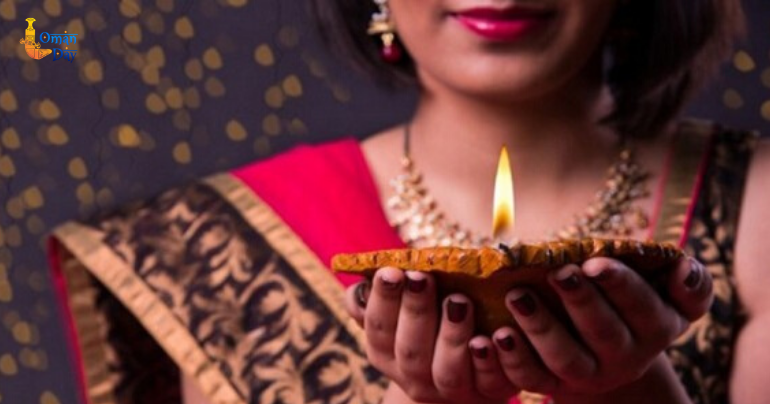Expats rejoice as Diwali fever grips Oman
Muscat: With Diwali putting many expats in the country in a joyful mood, those who celebrate the festival are preparing to welcome it in grand style.
Also known as the Festival of Lights, Diwali falls on 27 October this year, and celebrations are expected to continue throughout the week.
“Diwali is a festival that is associated with diverse traditions and symbolism,” said Mukund Manohar, an Indian expat in Oman.
“Although people from different parts of India associate Diwali with their own unique traditions, the main message that is common to all is the triumph of knowledge over ignorance and good over evil.”
“This year I would like to show my wife how we expatriates in Oman celebrate Diwali. Oman has a diverse Indian community and we usually spend Diwali with all our families and close friends. Diwali in Oman is all about sharing the joy and celebrating this special day with not just our expatriate friends, but also our Omani friends,” added Mukund, who recently got married.
His wife, Sandhya, added, “I am hoping to have my family over and plan a Diwali bash along with our friends and family here in Muscat. Diwali has always been a traditional affair in our household.”
In addition, confectionary shops in Oman have put extra staff on standby this Diwali, should there be more demand for sweets. Ali Asghar Vajihi, the owner of Bombay Sweets, one of the country’s oldest sweet shops, said he had placed orders for confectioners in his kitchen to remain on standby.
“We have a backup team, and we always plan. If we get big orders two or three days prior, then we have enough people to cope with this,” he said.
“Corporates tend to book their sweets in advance, but when it comes to walk-in customers, they normally begin buying sweets a day or two in advance and continue for three to five days.
“Diwali is the biggest sales period for us. After Diwali, we do get some sales during Christmas and the New Year, but we do not move as much volume at that time,” added Vajihi
Vajihi said, “There are certain items that can be recycled, but we do have to throw away other things if they don’t get sold.
“If it has to be sold, then it will be sold during Diwali, because after that, no one buys sweets for two or three weeks because everyone has enough at home.”
In addition, Deepak Daryani, the owner of Kesar restaurant in the CBD area of Muscat, said his establishments did brisk business during the month of Diwali.
“We have our own factory, we have a good staff strength, so we can put out more sweets if required,” he explained.
“This month, our staff is normally working overtime, producing as many sweets as they can to put them on the shelves. What we do generally is to keep the sweets ready in semi-prepared form.
“We have our cooling and storage units where things are kept semi-ready. It takes four to six hours from that stage to get them delivered to our restaurant.”
Daryani added, “We are expecting a very busy weekend. We began dispatching sweets for big clients around the 10th of October, so the majority of corporate orders are fulfilled before Diwali, because these need to be hand-delivered to their clients.
“It will not make any sense for example if I wish you a belated birthday. The big orders will be sorted this week at the latest. The corporates buy the sweets from us and they further deliver it to their clients.
“The weekend will mostly see retail sales. People will buy some sweets for themselves, for their friends, for their religious festivities, and for their parties.”
However, with Diwali primarily being a festival celebrated by expats in Oman, sweet vendors say their businesses have been hit following large numbers of foreign nationals leaving the country over the last few years.
“The market is actually down right now. Generally, we do around eight to nine thousand kilos of sweets during the month of Diwali, but this year, we are expecting a fall of between 10 and 20 percent,” explained
Deepak Daryani. “We are hoping this does not fall below 15 percent.
“The reason for this could be that a lot of white-collar workers have left the country due to the downturn, and they are our customers.
“Earlier, companies used to spend money and give sweets to their clients, but now, that has dropped,” he added.
“If, for example, they bought 300 or 500 boxes of sweets last year, this year it has gone down to 70 or 80 percent or even 50 percent of that.
Ali Asghar Vajihi added, “People are reluctant, and the corporates are not ready to spend. We expected there to be a dip in sales last year.
In terms of tonnes, we thought we would sell about three, but we only sold about two or two and a half, compared to 2015 or 2016, when business was good.
The impact of this is greater felt in the capital because ours is an expat-oriented business.
tag: muscat , diwali , expats , decoration , joy , festival , celebration , grand , style , mood
Share This Post






